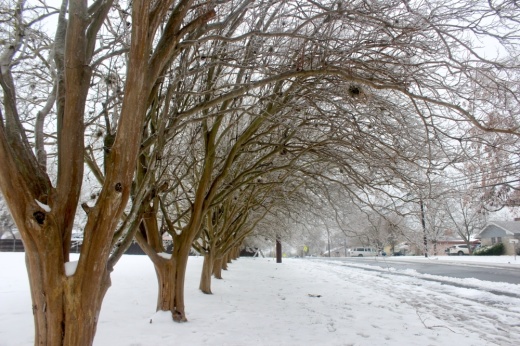Reynolds spoke during a virtual event hosted by the Fort Bend Chamber of Commerce about the legislative response to Winter Storm Uri, which left millions of Texas residents in the dark amid freezing temperatures.
After the major winter storm that hit Texas in February 2011, Reynolds said state legislators kicked the can down the road instead of taking action, banking on the hope that another storm would not come again for 100 years.
But Winter Storm Uri, which caused an estimated $295 billion in damages, according to a University of Houston report, blew through Texas in February, just 10 years later. State leaders decided to take action this time, Reynolds said, because of the reaction and response from Texans.
“There was outrage, there was national embarrassment—Texas was a laughingstock around the country,” he said.
Several key bills were passed during the legislative session that aim to make the state more prepared for similar weather emergencies in the future. Among them is Senate Bill 2, which was signed by Gov. Greg Abbott on June 8, that essentially called for an overhaul of the structure of the Electric Reliability Council of Texas and requires upgrades for power generators and transmission lines to make them better handle extreme weather events, Reynolds said.
Additionally, Senate Bill 3, which Reynolds called the power grid stability bill, was passed to make sure lights will stay on in the future, Reynolds said. The bill was also signed into law on June 8.
“The bill improves communication, coordination, oversight and enhances the reliability and resiliency of the ERCOT grid,” Reynolds said.
Though progress has been made, there is more work to be done, Reynolds said.
“We did some things right, but in full transparency, we didn't go far enough,” he said, adding that legislators left several opportunities on the table.
Among those missed opportunities is House Bill 3460, which would have created a grant program to provide direct financial assistance to certain residents who were affected by the storm, Reynolds said. As of June 14, the bill was left pending in committee.
Reynolds also called House Bill 2689—a bill he authored that stalled after being referred to the Environmental Regulation Committee in mid-March—a missed opportunity. The bill would have created a Climate Change Impact Assessment Council to study the impacts that climate change may be having on the state.
Abbott on June 22 announced he will convene a special legislative session on July 8. Agenda items will be released prior to the convening of the session, according to Abbott’s announcement, and Reynolds said he will be calling for items related to winter storm response to be included.
“Texas is one of the fastest growing states ... and we need to be able to make sure that we have a resilient, robust energy industry, using all of the technology and innovation we have, to ensure that we can meet that demand,” he said.





